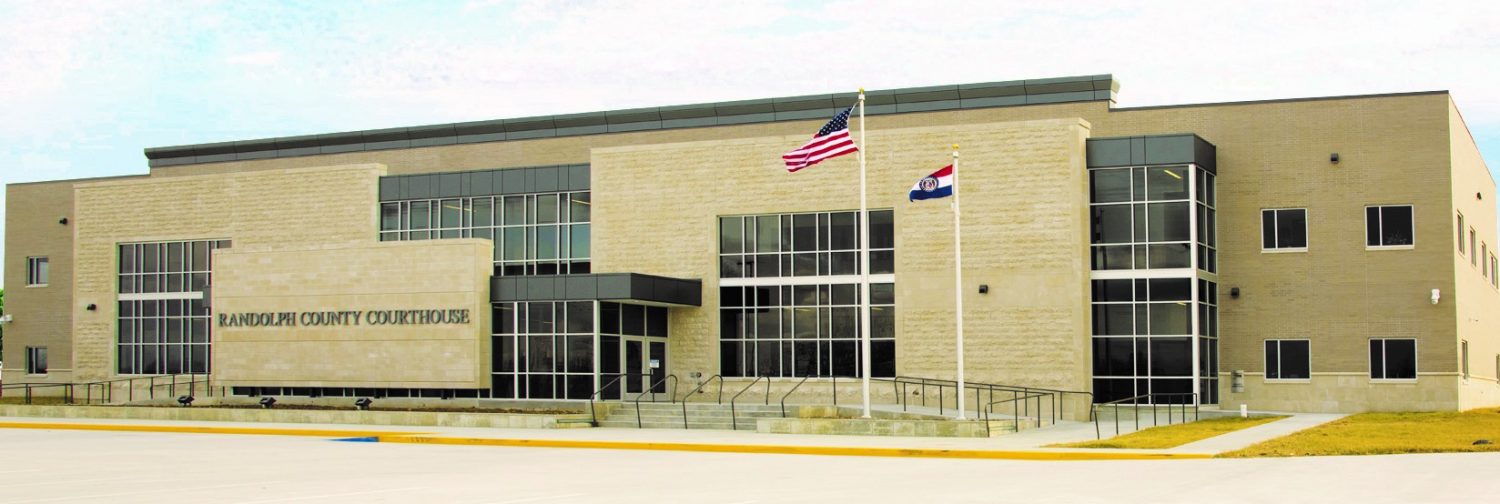Pursuant to Revised Missouri Statutes, Chapter 140, all lands and lots on which taxes are delinquent and unpaid are subject to sale at public auction.
* The tax sale is held annually on the fourth Monday in August commencing at 10:00 am in the Randolph County Courthouse.
* Delinquent taxes with penalty, interest and costs may be paid to the County Collector prior to the time of the tax sale.
* The list of properties subject to sale is published in the local newspaper for three consecutive weeks prior to the tax sale.
* Non-residents of Missouri may not bid unless proper procedures per the Missouri Statutes have been completed prior and special arrangements have been made with the Collector prior to the sale.
* The sale is conducted by the Collector. Bidding begins for the amount of taxes, penalties, and sale costs.
* Buyers must be present to bid.
* Each parcel offered for sale is individually identified by a brief legal description.
* Bidders must sign an affidavit stating that he/she is not currently delinquent on any tax payments. Failure to sign such affidavit, as well as signing a false affidavit, may invalidate the property purchase. Affidavits are available in the Collector’s office and must be completed prior to the sale.
* The successful bidder must pay the total purchase price to the Collector’s office immediately at the close of the sale. They will then receive a receipt identifying the parcel and bid price paid.
* If the bid is not paid, a penalty of 25% of the bid amount plus a prosecuting attorney’s fee may be assessed against the bidder.
* The Collector issues and mails a Certificate of Purchase to the purchaser. The Certificate of Purchase is retained for one year or until the property is redeemed.
* The original property owner may redeem the property anytime, within the time allowed by law.
* Liens are not extinguished at the time of sale or during any period of redemption.
* Property sold at tax certificate sale for delinquent taxes may be redeemed within one year from the issuance of a Collector’s Certificate of Purchase (revised 2004). To redeem you must follow these instructions:
- Please advise the Collector’s office at least 24 hours prior to the date you will be redeeming. We recommend scheduling an appointment and allowing twenty minutes to process.
- Call for the amount to be paid to the Collector at the time of redemption. The Collector will compute the amount paid by buyer, taxes paid since purchased, applicable costs, and annual interest, which will be the amount owed for redemption.
* Property may be redeemed by the owner of record, or on the owner’s behalf by a lien holder.
* Any tax sale bid amount which resulted in a surplus amount above the delinquent taxes and sale costs paid by the Certificate of Purchase holder is available for the owner of record. The surplus amount is deposited in a fund held by the County Treasurer.
* The Collector’s office notifies the Certificate of Purchase holder when the property has been redeemed. The Certificate of Purchase must be surrendered to the Collector before the holder will be reimbursed the amount due him/her.
* A Certificate of Redemption will be issued to the owner of record when property is redeemed. The Certificate Purchase holder will receive a copy of the Certificate of Redemption.
If the property has not been redeemed during the one year redemption period, the holder of the Certificate of Purchase may apply for and receive a Collector’s Deed to the property. A Collector’s Deed can be issued to the Certificate of Purchase holder provided the following has occurred:
- The legal holder of the Certificate of Purchase is named as the original tax sale purchaser of the assignee on the original Certificate of Purchase.
- A lien search on the property has been made by the purchaser and verification of findings furnished to the Collector;
- At least ninety days before requesting a Collector’s Deed, the Certificate of Purchase holder has notified any person who holds a publicly recorded deed of trust, mortgage, lease, lien, or claim upon that real estate of their right to redeem such person’s publicly recorded security or claim by certified mail and verification of such mailing furnished to the Collector;
- At least ninety days prior to requesting a Collector’s Deed, the Certificate of Purchase holder has notified the publicly recorded owner at the last known address and the notification must have been by certified mail, stating the purchaser’s intent to obtain a Collector’s Deed;
- Property liens, with the possible exception of a federal tax lien, are extinguished once a Collector’s Deed is issued assuming compliance with notification(s) to lien holder(s) is proven;
- The Certificate of Purchase has been surrendered to the Collector; and
- Appropriate fees have been paid to the Collector including recording and collection fees.
The Collector’s office makes every attempt to notify the interested parties; however, failure to receive notice(s) does not affect the legal constraints for redeeming property or obtaining a Collector’s Deed.
